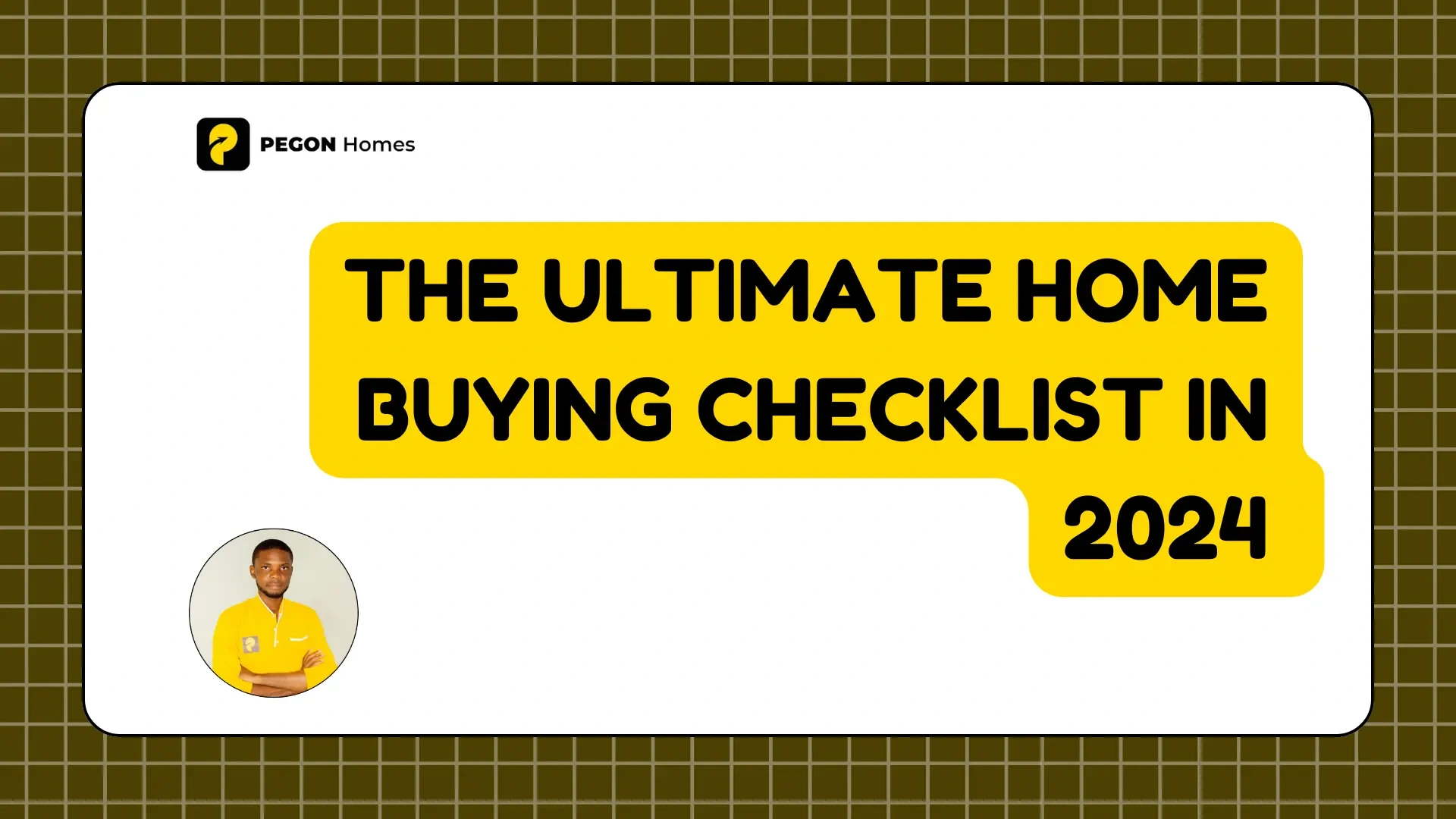The Ultimate Home Buying Checklist in 2024

Are you feeling overwhelmed about buying a home? Don’t worry, I’ve got you covered with a simple checklist to ease your worries.
Follow these 13 easy steps outlined in this checklist, and you’ll be all set for your closing date. From gathering necessary documents to arranging inspections, we’ve got it covered!
Did you know that 88% of homebuyers use online resources during their home search process? That’s why having a comprehensive checklist like this is important.
When I was buying my first home, I felt a mix of excitement and nervousness. But armed with a checklist, I tackled each step one by one, from sorting finances to selecting the right neighborhood.
With each task completed, I felt more confident and ready for my closing date. Trust me, you can do it too!
What are some things you can do before you start to look for a new home?
Before diving into the hunt for a new home, it’s smart to take a few steps to make sure you’re on the right path. First off, you’ll want to do some math and compare home prices to what you can afford. This means knowing your budget inside and out so you don’t end up in over your head.
Next, consider where the home is located. Think about how close it is to your workplace, family, and friends. It’s also crucial to check out the transportation options nearby, like buses or highways, to make sure you can get around easily.
Then, take a look at what’s nearby. Are there parks, shops, schools, or healthcare facilities? These amenities can make a big difference in your day-to-day life. By checking off these boxes before you start your search, you’ll be better prepared to find the perfect place to call home.
Here are the things you need to look out for before buying a home in 2024
1. Get Your Finances in Order:
When you think about buying a house, it’s a really big deal for your money. So, before you dive in and start looking at houses, you need to make sure you’re in good financial shape.
2. Check What You Can Afford:
Before you get too excited about house hunting, figure out if you can actually afford the house you want. Most people need to get a loan from a bank to buy a house. But it’s a real bummer if the bank says no. So, it’s super important to check your money situation before you start looking at houses.
3. Plan for Your Down Payment:
Once you know how much house you can afford, think about how much money you need to put down upfront. The amount you need to put down depends on the type of loan you get. Some loans need a smaller down payment, like 3% to 5% of the house’s price.
If it’s your first time buying a home or if you haven’t owned one in a while, you might get help from programs for first-time buyers. You might also get gift money from a friend or family member to add to your down payment.
4. Find the Right Mortgage:
There are different kinds of loans you can get to buy a house, and they each have their own rules. Some need a bigger down payment, and some are easier to qualify for. It’s important to learn about the different types of loans before you decide which one is best for you.
5. Get Pre-Approved for a Mortgage:
Before you start looking at houses, you need to know how much money the bank will lend you. You can do this by getting pre-approved for a loan. Pre-approval is different from pre-qualification because it’s a more serious look at your finances.
You have to apply for pre-approval and give the bank a bunch of documents. Once they say yes, you’ll get a letter saying how much money they’ll give you.
6. Shop Around for Lenders:
Don’t just go with the first bank that says yes. It’s a good idea to get quotes from a few different banks so you can compare them. Look for ones that have good interest rates and low fees. And make sure you feel comfortable with the people you’ll be working with.
7. Find a Real Estate Agent:
A real estate agent can help you find the perfect house. They are knowledgeable about the home market and may offer you assistance.
But not all agents are the same, so it’s a good idea to interview a few before you pick one. And make sure you choose someone who will work for you, not the seller.
8. Making an Offer on Your Dream Home:
You’ve finally found the home that feels just right for you. Now it’s time to take the big step and make an offer. Your real estate agent is your go-to person for this part, as they can provide you with helpful information about similar sales and insights into the sellers’ situation.
If needed, you might also want to consult with a real estate attorney, especially if it’s required in your state.
If the seller doesn’t accept your offer, don’t worry. You might have the chance to counter their rejection or decide to walk away, depending on their reasons.
If they counter your offer, your agent will guide you through the negotiation process, helping you decide whether to accept their terms or make your own counteroffer. This is where having a reliable buyer’s agent becomes invaluable.
9. Getting Final Approval for Your Mortgage:
Once the seller agrees to your offer, it’s time to kick off the formal mortgage application process. Even if you’ve been pre-approved for a loan, you’ll likely need to provide additional documents as the underwriting process unfolds. Be prepared to cooperate with your loan officer to ensure everything goes smoothly.
10. Securing Homeowners Insurance:
Although it might seem odd to get insurance for a home you don’t yet own, most lenders require homeowners insurance before granting you a mortgage. Make sure you have enough coverage to fully replace the home, which might differ from its purchase price or appraised value. Typically, the policy should start on your closing date.
11. Scheduling a Home Inspection:
A thorough home inspection can uncover potential issues and necessary repairs, giving you a clear picture of the property’s condition. The inspection includes everything from the foundation to the roof. If you have specific concerns like mold or radon, consider getting specialized inspections in addition to the standard one. Features such as pools, septic systems, or retaining walls may also warrant separate inspections.
12. Having the Home Appraised:
The home appraisal is a separate process from the inspection and is primarily for the lender’s benefit. The appraiser evaluates the home and compares it to recently sold properties to determine its market value. While the lender selects the appraiser, you’ll be responsible for the appraisal fee. Even if you’re paying cash for the house, hiring an appraiser can provide reassurance about the property’s value.
13. Negotiating Repairs or Credits with the Seller:
Even though certain items may have been outlined in your initial offer, there could still be some negotiations to iron out before the deal is sealed.
Your ability to negotiate might depend on the type of market you’re dealing with. In a seller’s market where demand is high, sellers may be less inclined to make concessions since they have other options readily available.
However, if there are issues that are likely to arise with any buyer—such as necessary repairs flagged by a home inspector—you could have some leverage. Conversely, in a buyer’s market where there are more homes available than buyers, nearly every aspect of the transaction, including having the seller cover some of your closing costs or loan points, can be up for negotiation.
Conclusion
In conclusion, purchasing a home is a significant milestone, and having a comprehensive checklist can ease the process and ensure nothing is overlooked. From setting a budget to inspecting the property, each step plays a vital role in making an informed decision.
By following this ultimate home buying checklist in 2024, buyers can navigate the complexities with confidence. Remember, thorough research and careful consideration are key to finding the perfect home that meets both your needs and your budget. Happy house hunting!
Like this project
Posted Jul 15, 2024
Created a detailed Ultimate Home Buying Checklist for 2024, covering budgeting, mortgage tips, home selection, and closing steps to guide buyers effectively.
Likes
0
Views
2







